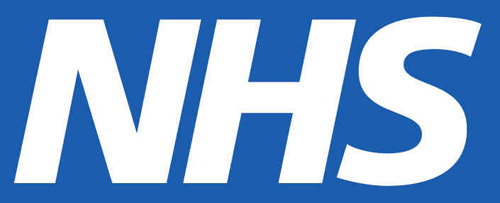PATIENTS have escaped from Scottish mental hospitals an “astonishing” 1000 times in just five years.
Vulnerable dementia sufferers as well as people detained under the mental health act were among at least 1,067 patients to go missing from medium and low risk units across the country.
And the total is likely to be much higher as Scotland’s largest health board – NHS Greater Glasgow and Clyde – failed to provide information despite a request under the Freedom of Information Act.

Scottish Conservative health spokesman Jackson Carlaw said the figures raised real questions about security levels in Scottish hospitals.
In many cases police – sometimes using sniffer dogs – had to step in to return patients.
Official figures, released under Freedom of Information, show that 250 patients detained under the mental health act absconded from NHS Fife hospitals in the past five years.
Incidents include one woman who was “found by police and returned by ambulance” in March 2012, after escaping from Lomond hospital.
Another female patient was missing from the same hospital for four days in December 2011, before police tracked her down at her home.
In August 2011, a woman absconded from Lomond hospital, and was discovered five hours later “by police dogs in Stratheden grounds.”
NHS Lanarkshire reported 267 absconding patients in the past five years, and NHS Forth Valley approximately 369 for the same period.
Forth Valley incident included 259 absconders from “older people services” or “elderly wards” from Falkirk Community Hospital, Bellsdyke, Killdean Day Hospital, Bannockburn and Bo’nesss Hospital.
NHS Dumfries and Galloway had seven incidents since 2008 including a “Detained patient who is on 1:1 observations.”
In June 2008 a “detained patient left Ettrick Ward via Glencairn front door” before being “returned quickly by police.”
But Scotland’s second largest health board, NHS Lothian, claimed they had fewer than five “absconders from within the Intensive Psychiatric Care Units” since 2006.
Glasgow
NHS Greater Glasgow and Clyde failed to return the FOI, despite being over a month overdue.
NHS Highland only provided figures since May 2012, but had 27 absconding patients in this time, including ten “vulnerable patients” and 12 “missing patients.” The board also recorded five patients who “failed to return from authorised leave.”
Scottish Conservative health spokesman Jackson Carlaw said the figure was “astonishing”.
He said: “Within Scotland’s enlightened but secure mental health facilities, it is clear there will be incidents of absconding.
“However, this is an astonishing number, and raises real questions about security levels.
“Whether an absconding patient is a danger to the public, or more likely a risk to themselves – such as an acute dementia sufferer – it is crucial such instances are minimised.
“The Scottish Government must explain why this number is so high, and what it is doing to address this.
“However, I sympathise with nursing staff.
“Surely they have enough on their plate without being security guards as well?”
Problem
Margaret Watt, director of Scotland Patients Association, said: “This is a very big problem and it should not be happening. People who just up and leave hospital could come to serious harm.
“We have to look at why they are choosing to leave hospital, but also why this is allowed to happen.
“A lack of staff must be a problem; it shouldn’t be that easy, no person should be able to walk out of hospital.
“It’s even more of a concern in this weather, if a patient leaves in the freezing cold, they could be risking their life. It must be very worrying for the relatives of the patients.
“The health boards need to work on this, they need to make the problem better. They need to be able to make it right.”
Bob Mclean, General Manager NHS Fife Mental Health Services, said: “The overwhelming majority of patients who go missing from hospital for periods of time are those who have failed to return from approved time out from the hospital.
“All detained patients are required to have a Suspension of Detention care plan, detailing the limits and conditions of their approved ‘time out’ from hospital.
“Patients, who breach the conditions of their ‘time out’ care plan, will have their plan reviewed accordingly with ‘time out’ being stopped or restricted.
“Patients who abscond, and where there is an element of risk to themselves or others, may be placed under an enhanced level of observation and supervision for a period of time until the risk is deemed to have been resolved.
“There is an agreed joint protocol in place between the Mental Health Service and the police describing the processes and procedures to be implemented when a patient does go missing from hospital.”

